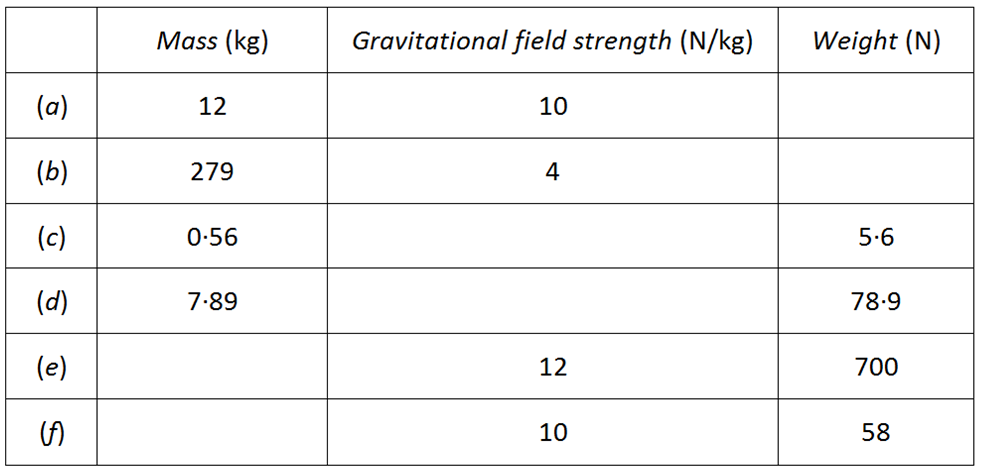The Summary Notes section, including worked examples can be accessed by clicking here.
1. Find the missing values in the following table.

2. Calculate the weight of a 70 kg man on Earth.
3. If a moon rock has a weight of 4·6 N, what is its mass?
4. An objects weight depends on the strength of the gravitational field around it. A scientist records the weight of a 3 kg rock on each planet and records the information in the table overleaf.
Use the results from the table to work out the value of the gravitational field strength on each planet ( you can check your answers against the data sheet on page 24).
5. Using your results to question 4, state which planet(s) have:
(a) the strongest gravitational field strength
(b) the weakest gravitational field strength
(c) a gravitational field strength nearest to that on Earth
(d) a gravitational field strength three times as strong as that on Mercury.
6. Which is heavier, a 2 kg stone on Neptune or a 0·9 kg rock on Jupiter?
7. How much lighter does a 65 kg woman seem on the moon, where ‘g’ = 1·6 N/kg, than on Earth?
8. Find the weight of a satellite booster on Mars if it weighs 24 N on the moon.
9. What is the difference in mass between a 40 N weight on Venus and a 104 N weight on Jupiter?
10. A rock weighs approximately two and a half times its weight on Earth somewhere in our solar system. Where is it likely to be?



